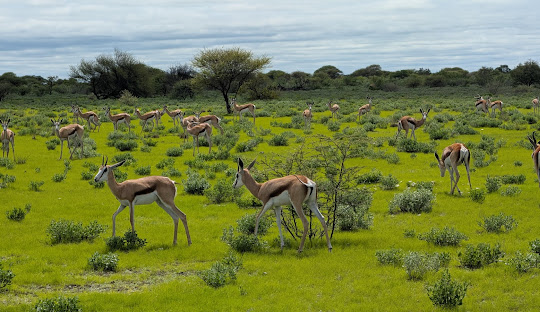Botswana
🐘 Into the Wild: Discover the Raw Beauty of Botswana
Tucked away in the heart of Southern Africa, Botswana is one of the continent’s most rewarding travel secrets. It’s a country where the wilderness roams free, the sky stretches endlessly, and the people welcome you with a gentle rhythm of life. Unlike its more commercialized neighbors, Botswana prides itself on low-impact, high-value tourism — offering pristine nature, unmatched wildlife, and authentic cultural connections.
🌍 Where Nature Rules: The Geography of Awe
Botswana is largely flat, with the Kalahari Desert dominating much of its terrain. But it’s the stunning Okavango Delta — a vast inland river delta — that steals the spotlight. This UNESCO World Heritage Site is a lush water world that pulses with life, shifting with seasonal floods and attracting a breathtaking array of wildlife.
North of the country lies Chobe National Park, home to the world’s largest concentration of elephants. The Makgadikgadi Salt Pans, once a giant lake, offer stark, moonlike landscapes, while the Central Kalahari Game Reserve beckons those seeking solitude and silence.
🐾 Safari Royalty: Wildlife Encounters
Botswana is synonymous with world-class safaris. Forget the lines of jeeps seen in some parks elsewhere — here, you often have a lion sighting all to yourself.
-
Okavango Delta: Glide in a mokoro (traditional canoe) past hippos, crocodiles, and shy sitatungas. The floodplains are alive with elephants, leopards, giraffes, and hundreds of bird species.
-
Chobe National Park: Take a river cruise at sunset and witness herds of elephants swimming across the Chobe River, with buffaloes, antelope, and colorful kingfishers nearby.
-
Moremi Game Reserve: Often called the “predator capital,” it’s one of the best places to spot wild dogs, lions, cheetahs, and hyenas in action.
🛖 Culture and Tradition: Meet the Heart of Botswana
Beyond the wildlife, Botswana’s strength lies in its people. The Tswana culture forms the foundation of society, emphasizing community, respect, and harmony with nature. Visitors are warmly invited to local villages to experience traditional music, dance, and craft.
Spend a night in a San Bushmen camp and learn ancient survival skills — tracking animals, making fire, and listening to folklore that dates back thousands of years. This spiritual and educational immersion connects you to the land in ways few other places can.
⛺ Sleep Under the Stars: Unique Stays
Botswana specializes in high-end eco-lodges and luxury tented camps, many of which are so remote they can only be accessed by small bush planes.
-
Jao Camp (Okavango Delta): Stylish, sustainable luxury in the heart of the wetlands.
-
Sanctuary Chobe Chilwero (Chobe): Offers panoramic views over the floodplains and river.
-
Jack’s Camp (Makgadikgadi): Famous for its 1940s safari style and meerkat experiences.
These lodges blend opulence with deep respect for the environment. Solar power, local materials, and community employment are common practices — ensuring that tourism gives back.
🍴 Taste of the Wild: Botswana’s Cuisine
Botswana’s culinary traditions are rooted in simplicity and seasonality. Key ingredients include sorghum, maize, and fresh game meats.
-
Seswaa: A slow-cooked shredded beef or goat dish, often served with pap (maize porridge).
-
Morogo: Wild spinach sautéed with onion and tomato.
-
Vetkoek: A fried bread snack often filled with savory mince.
-
Boerewors: A juicy spiced sausage grilled over open flames.
Traditional meals are best enjoyed during village visits or in camps where chefs put a modern twist on age-old recipes.
📅 Best Time to Visit: Seasons of Wonder
Botswana has two main seasons:
-
Dry Season (May–October): This is peak safari time, as animals gather around water sources. The Okavango Delta floods during this time, creating a lush oasis.
-
Green Season (November–April): Rains bring vibrant landscapes, newborn wildlife, and excellent birdwatching. Fewer tourists mean more intimate experiences and reduced lodge rates.
🚐 Travel Tips & Essentials
-
Visa: Many nationalities can enter Botswana visa-free for up to 90 days.
-
Currency: Botswana Pula (BWP). Credit cards are accepted in most lodges and hotels.
-
Health: Malaria is present in some areas; consult a travel doctor before your trip.
-
Transport: Charter flights and 4x4 transfers are common. Self-driving is possible but only for experienced adventurers.
-
Responsible Travel: Botswana is serious about conservation. Follow eco-guidelines, respect wildlife distance, and support local artisans.
⭐ Flyover Rating
-
Wildlife Experience: ★★★★★
-
Natural Beauty: ★★★★★
-
Cultural Immersion: ★★★★☆
-
Accommodation: ★★★★★
-
Accessibility: ★★★☆☆


